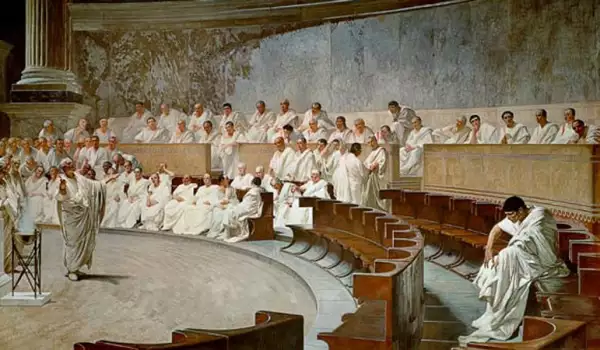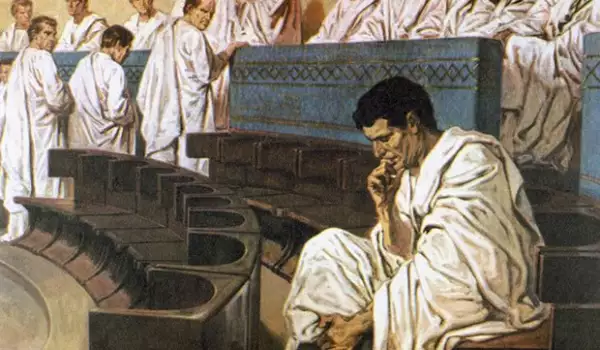Lucius Catilina was a wealthy Roman who, like most of those belonging to the upper class at the time, loved to indulge and partake in exuberant feasts, even if they were unable to actually afford them.
It wasn't long before his perpetual wastefulness left him nothing of his wealth and he was forced to take out loans in order to continue his merrymaking with friends.
His hopes for getting rich quick led him to meet other Romans, who, like him, had fallen into serious debt. They formed a group which, eventually, grew to a respectable army for the time.
Catiline rallied thousands of beggars and vagabonds, who were more than ready to serve him in exchange for food. He appointed the general Manlius to train them and prepare for an attack on Rome itself.
Their plan was going smoothly until, as the French saying goes "cherchez la femme", or "look for the woman", a woman's involvement indeed became detrimental to the plot.
Fulvia was simultaneously the mistress of one of Catiline's close conspirators and of the famous orator Cicero, who also served as consul in the Senate at the time.

Learning of the conspiracy, Cicero immediately drew attention to it and ordered a force to prevent the attack.
Catiline too learned that his plan had been exposed and decided to attack earlier than originally intended. His first objective was to kill Cicero but upon approaching his home and seeing it heavily guarded, they abandoned it.
At the same time, the Celtic tribe of the Allobroges arrived in Rome to ask for lower taxes. Catiline proposed that they join his own forces but this backfired, as the Celts feared the power of the Romans and ultimately contacted Cicero.
Cicero, in turn, convinced them to pretend that they had accepted the proposal of the conspirators. In this way, the Romans caught a portion of the rebels and threw them in the dungeons, where they were choked to death.
The decisive battle was held just several days later and despite Catiline rallying an army of roughly 10 000, they were unable to overthrow the Roman Empire. Naturally, the victory was a hollow one, for the Romans lost many of their own men while quelling the rebellion.









